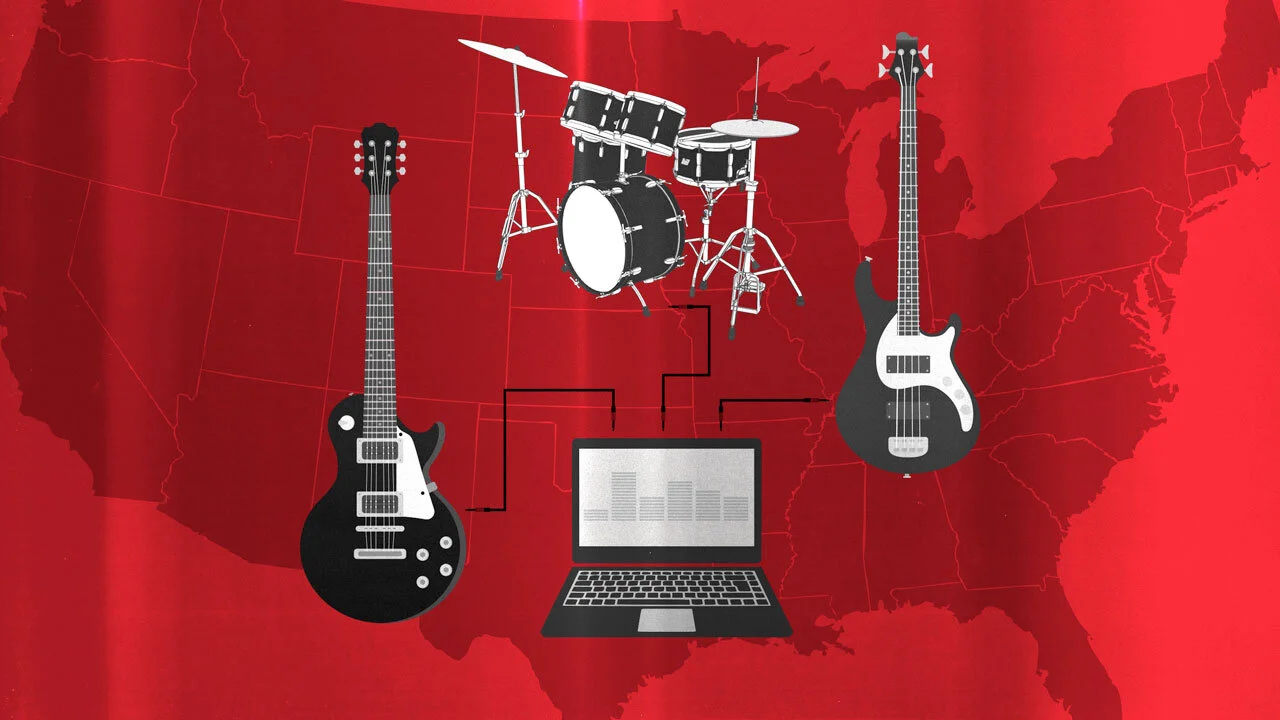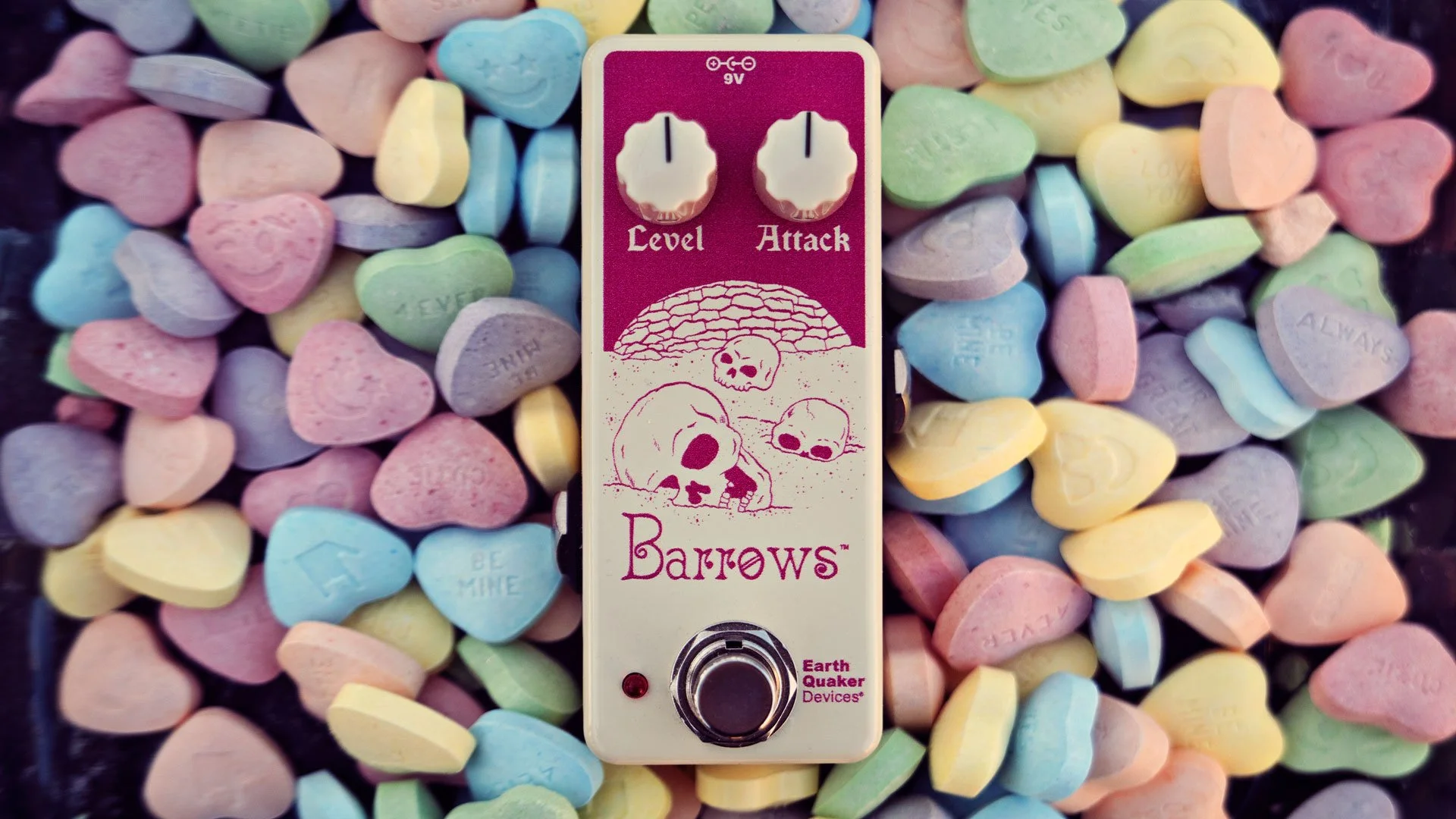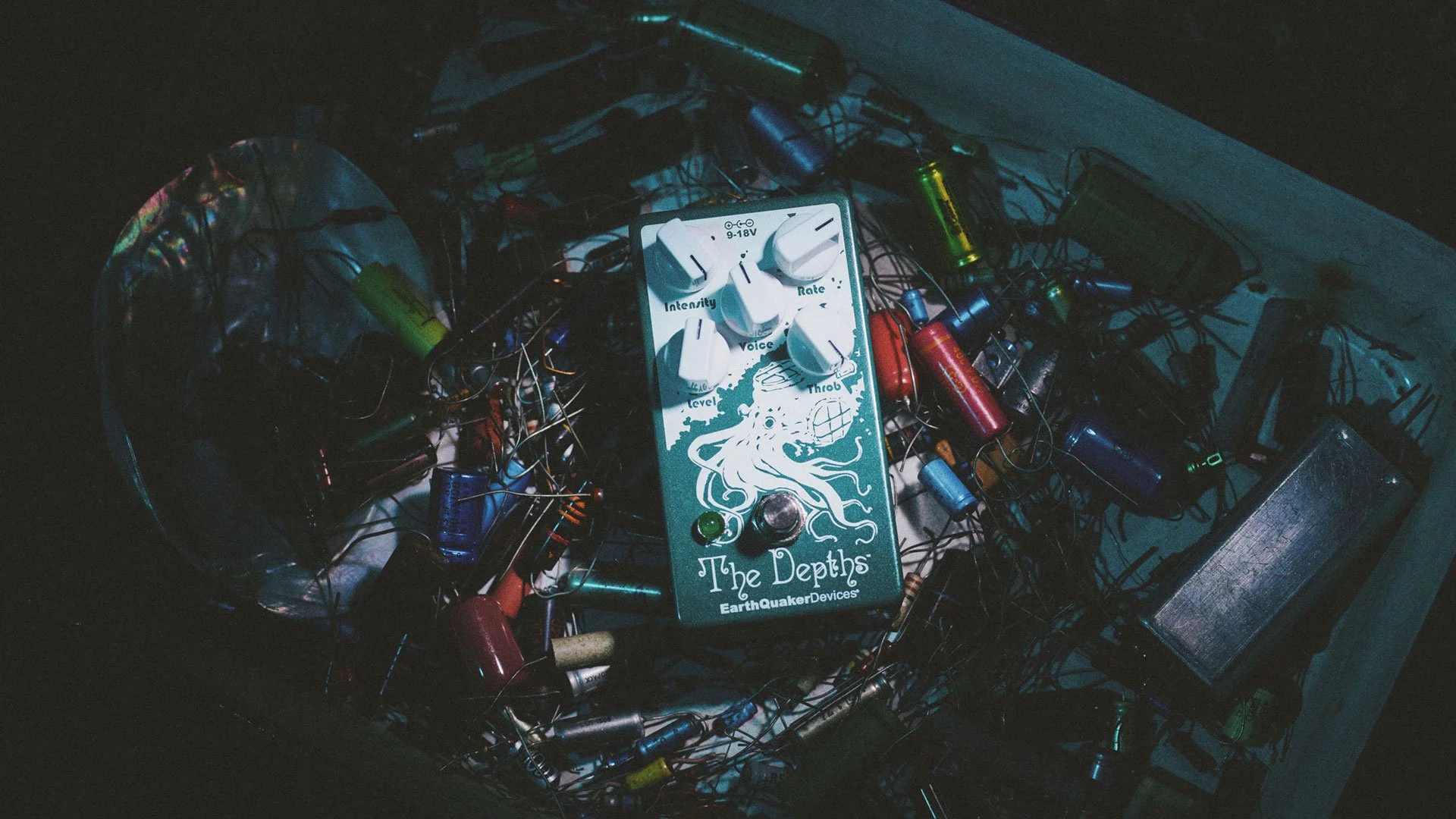Best Practices For Remote Session Work
Jon Titterington
Hey all! Hope everyone is safe out there. At the time I’m writing this, COVID-19 is raging across the planet, and folks who aren’t offering essential services to the rest of society are hunkered down in their respective homes, waiting it out. If you’re reading this in the distant future, I just wanna say ‘sup and I hope things have improved dramatically in the intervening days/months/years. That being said, musicians find themselves firmly in the non-essential end of the workforce, and with concerts canceled and bars closed down, we’ve all gotta figure out new ways to stay productive.
So, to that end we’ll be talking about remote session work today. The barriers to entry for music production have been lowering steadily over the last 20 years, and we’re now at a place where pop hits are being recorded in bedrooms. I don’t think it’s crazy to assume that the pandemic is accelerating this paradigm shift away from studios and more towards home recording, so I think everybody in music should be ready to adapt.
In the last five years, my own production workflow has been primarily based in the remote world - I’d say 75% vs 25% in the studio. I’ve picked up a few pointers along the way, either through experience or from colleagues, which you may find useful.
A Quick Disclaimer
I’m writing this for folks who are already familiar with the basics of home recording. Music production is an incredibly broad, divisive topic that’s been written about exhaustively and I wouldn’t be able to scratch the surface in a blog post. If you’re reading this and you’re a novice, my super, super general advice is to start out simple. Learn the basic/stock tools before spending lots of cash on fancy stuff. And Google is your friend. There’s a ton of knowledge out there on the internet. Also, keep the Playstation in a different room than your recording rig. Wink.
Alright, here we go.
Do Your Homework
The goal with most session work is efficiency, and in my experience, preparation is the best way to get a job done quick. Take the time to chart out or notate whatever you’re working on. It’s a little tedious, but it’ll save you a TON of time on the backend. Even if the producer provides a chart, I usually make my own since errors are common. If you’re given sheet music, do a listen-through to make sure it’s accurate, and mark it up with any dynamic or stylistic flourishes that aren’t on the page.
Asking for musical references is key. Producers almost always have something in mind that they’re trying to achieve with your part (e.g. “I want the Wurli sound from Dirty Work” or “gimme the drums from Innerspeaker”), so the more you can tap into that, the better your working relationship is gonna be. When I’m using remote session players on a track, I like to give them at least two songs to listen to before they start recording.
Be upfront with any questions you have. You should never start tracking if you’re unclear or confused about what it is you’re trying to capture with a performance. If a producer tells you “just do whatever you’re hearing” that’s all well and good, but I still like to push for a little more direction than that. In a vacuum, peoples’ tastes rarely align.
Set Your Terms Upfront
Musicians generally hate negotiating. We also hate talking about money. Unfortunately, these are huge roadblocks to any kind of happiness or well-being as a freelancer.
So with that in mind, always agree to a rate before taking on a job. Even if you’re not doing the job for money, make the arrangement crystal clear. Diving in, sending off the deliverables, and then negotiating an agreement is a sure way to drive yourself crazy and/or get taken advantage of. Don’t do it. Also, be sure to protect yourself from getting sucked into revision hell. If I’m not that familiar with a producer, and they’re looking for something really specific, I’ll put a cap on how many revisions I’ll deliver for a given rate. Setting these kind of boundaries will help ensure that people respect your time.
Another thing to consider is setting tiers for your services, if you feel like you’re not getting offered enough money. I’m a keyboard player primarily, so if the budget for a project isn’t very big, I’ll sometimes offer a reduced rate where I’m only using software synths/keys. It’s a decent compromise.
Overdeliver
If you’re able to lock in terms that you’re happy with, then it’s always a good idea to hit your client with a little something extra - they’ll remember it next time they’re looking for session work. This can be different for everyone, but a few options include:
A “sauce” pass where you play a bunch of crazy ideas, and get busier than you normally would (producers will often ask for this anyway, but if they don’t I still like to hit ‘em with one)
Do a tone-quest take, trying to find some new sonic textures (also a great way to come up with ideas for your own projects, or future sessions)
Add an extra instrument. I play a few other things besides keyboards, so if I’m tracking pads for somebody sometimes I’ll throw in some horn stacks, or big sweeping guitar diamonds that they can layer in if they want. This is also a good way to show off your skill set and drum up more work in the future.
Make sure, of course, that you’re not cannibalizing yourself with the extra effort. Aim to give 110% of what you promised, as opposed to 150%. And be honest with yourself. If you notice you’re getting resentful of the time commitment, you’re well past when you should’ve shut it down and delivered.
Hope this is helpful, and good luck out there. Cheers!
Jon Titterington is a touring and session musician from Los Angeles, CA. His album credits include Father John Misty, Khalid, Ben Lee, and Christina Perri.



